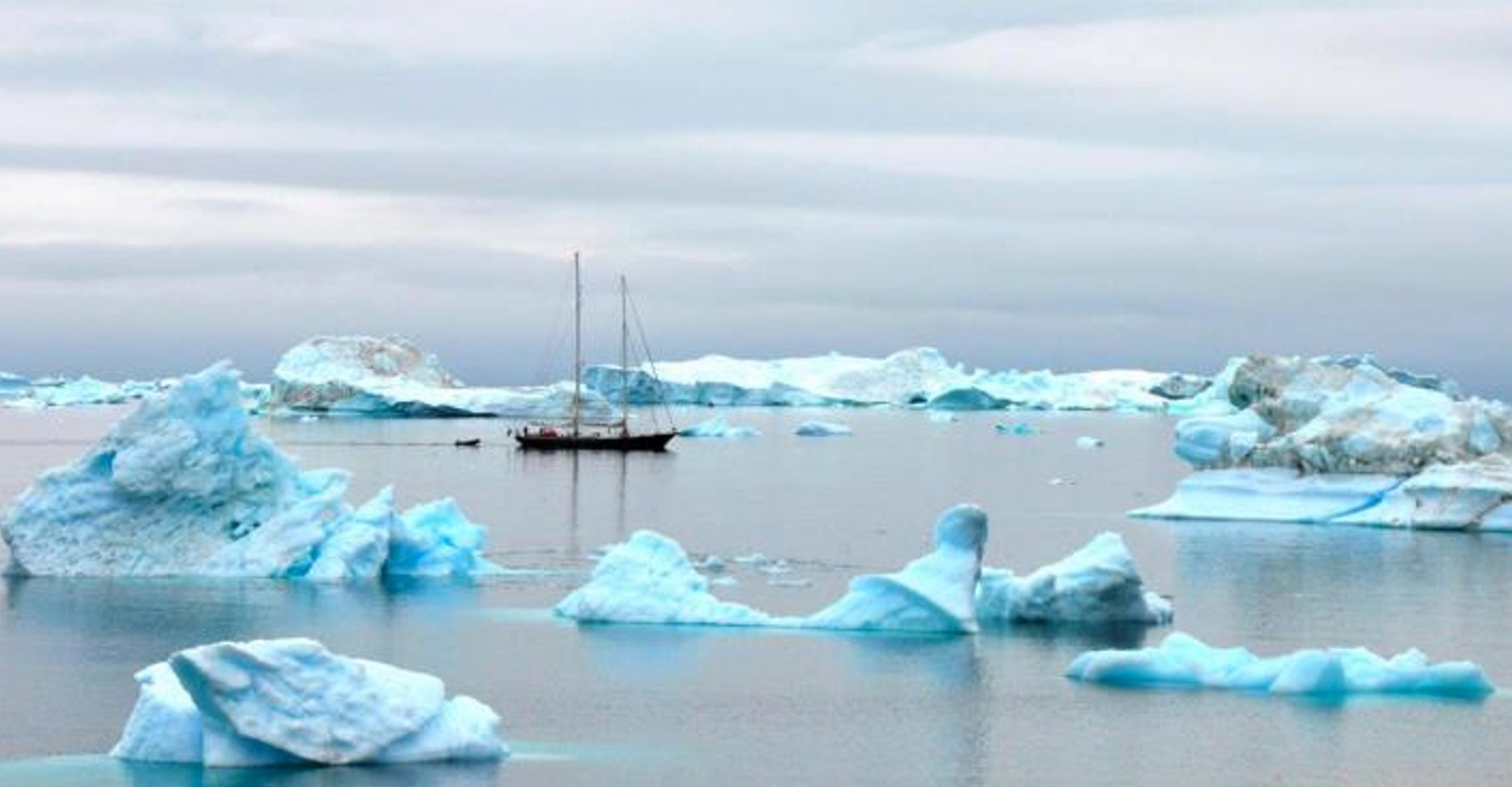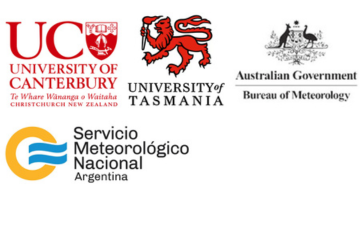
Endorsed Projects
PCAPS welcomes collaboration with institutions and individuals working on matters associated with environmental services in the polar regions.
PCAPS invites projects that support its goal and aims to apply for endorsement by the Scientific Steering Committee (SSC) of the World Weather Research Programme (WWRP).
Endorsed Projects play a key role in improving the actionability, impact, and fidelity of environmental forecasting for human and environmental well-being in the Arctic and Antarctic. Learn more about each of our Endorsed Projects below.
Project endorsement by WWRP-PCAPS offers several benefits:
Gain visibility of the research activities through the inclusion of links to the endorsed project’s websites or activities in both the WWRP and PCAPS website and e-newsletter;
Align your project with the strategic priorities of WWRP and PCAPS, fostering interdisciplinary collaboration and knowledge exchange;
Foster engaging and inspiring networking and communication by strengthening collaboration between project partners andthe broader WWRP and PCAPS community;
Each Endorsed Project is assigned PCAPS focal points from both the natural and social sciences – reflecting the interdisciplinary nature of PCAPS – to ensure your work is meaningfully connected to relevant Task Teams and enriched by diverse scientific perspectives.
The Endorsed Project application is a very simple application that requires answering some brief questions and submitting a 250-word maximum summary of the project and a 1000-word maximum description about how the project relates to WWRP and PCAPS.
Funded projects as well as project proposals are both eligible to apply for project endorsement.
Further information about WWRP Endorsed Projects - including the link to the application form - is below.
WWRP-PCAPS Endorsed Projects
-
Sea Ice Prediction Network South (SIPN South)
PI: François Massonnet, Université catholique de Louvain
Unfunded activity
JAN-17 –
The SIPN South project addresses the growing challenge of predicting Antarctic sea ice in a context of puzzling changes. Following 35 years of slight sea ice expansion in a warming world, the trend has rapidly reversed, with record low levels of sea ice now being observed across all seasons. This significant shift, which some scientists believe may indicate a regime change in the Southern Ocean, presents a unique opportunity to assess the value of dedicated prediction systems.
PCAPS SG focal points
Natural Science: Clare Eayrs
Social Science: Victoria Heinrich
Project partners

-
Improving Weather Forecasting Models for Services in Antarctic and Southern Ocean Regions
PI: Victoria Heinrich, Bureau of Meteorology and the University of Tasmania
Funded by: Bureau of Meteorology, Australia
FEB-24 – DEC-26
In the remote, extreme environments of Antarctica and the Southern Ocean, weather forecasts, based on numerical weather prediction (NWP) models, are critical to people’s planning, decision-making, risk assessment and safety for their outdoor activities and operational efficiency. Through an online survey and workshop this mixed-methods, trans-disciplinary, and collaborative project aims to elicit expert opinions and develop consensus across diverse stakeholder communities on research priorities and ways forward to improve forecasting services to produce usable and actionable information that meet user and decision-maker needs.
PCAPS SG focal points
Natural Science: Andrew Orr
Social Science: Victoria Heinrich
Project partners

-
Coupled Modelling and Observations in the Marginal Ice Zone
PI: Malte Müller, Norwegian Meteorological Institute
Funded by: Research Council of Norway
JAN-24 – DEC-26
The main goal of the Coupled Modelling and Observations in the Marginal Ice Zone (MIZ) project is to observe and better understand the complex interplay between atmosphere, waves, and sea-ice in the MIZ and to assess the predictive skill and uncertainties of coupled Arctic forecasting systems. A large number of observation points are needed to allow for a representative comparison between in-situ observations and gridded model data.
PCAPS SG focal points
Natural Science: Phil Browne
Social Science: Jelmer Jeuring
Project partner

-
North American Upstream Feature-Resolving and Tropopause Uncertainty Reconnaissance Experiment (NURTURE)
PI: Steven Cavallo, University of Oklahoma
Funded by: National Aeronautics and Space Administration, USA
JAN-24 – JAN-28
The NURTURE project is a planned NASA-supported large-scale aircraft field campaign designed to advance knowledge of the processes that lead to extreme high-impact weather (HIW) events during the winter, such as severe cold air outbreaks, windstorms and hazardous seas, sea ice breakup, and extreme precipitation.
PCAPS SG focal points
Natural Science: Pranab Deb
Project partner

-
Turbulence and Supercool Clouds in Antarctica (T-SCAN)
PI: Paola Rodriguez Imazio, National Weather Service, Argentina
Funded by: National Weather Service - Ministry of Defense, Argentina and Institute of Polar Sciences, Italy
JAN-25 – FEB-26
The T-SCAN project aims at identifying supercooled cloud droplets in polar regions. These droplets exert substantial radiative impacts on the surface energy budget, and play an important role in Arctic amplification and solar absorption over the Southern Ocean, in addition to generating in-flight icing, which represents a significant hazard to all forms of aircraft. This findings from T-SCAN are essential for both aviation and climate studies.
Learn more here.
PCAPS SG focal points
Natural Science: Paola R. Imazio
Social Science: Jelmer Jeuring
Project partners

-
Forecast of Antarctic Sea Ice Trend (FAST)
PI: Emilia Kyung Jin, Korea Polar Institute
Funded by: Ministry of Oceans and Fisheries, Republic of Korea
JAN-25 – DEC-30
The FAST project aims to establish the Antarctic sea ice observation system by implementing cutting-edge field observation technology through global cooperation, obtain high-quality data required for improving forecasts, and identify the formation, growth, and melting characteristics of Antarctic sea ice, particularly focusing on the rapid melting process in Terra Nova Bay near Jangbogo Station, East Antarctica.
PCAPS SG focal points
Natural Science: Clare Eayrs
Social Science: Hanne Nielsen
Project partners

-
Isfjorden Weather and Ocean Observing System (IWOOS)
PI: Marius O. Jonassen, The University Centre in Svalbard
Funded by: Svalbard Integrated Arctic Earth Observing System (SIOS)
JAN-25 – DEC-26
The IWOOS project aims to address critical gaps in atmospheric and oceanographic data in the Isfjorden region in Svalbard, particularly responding to the rapid Atlantification that impacts the area. This phenomenon has significantly reduced sea ice cover and changed marine ecology, which calls for enhanced monitoring and understanding of the changes.
PCAPS SG focal points
Natural Science: Jørn Kristiansen
Social Science: Machiel Lamers
Project partners

-
Canada-Sweden Arctic Ocean Expedition 2025
PI: Åsa Lindgren, Swedish Polar Research Secretariat
Funded by: Swedish Polar Research Secretariat
AUG-25 – SEP-27
The Swedish Polar Research Secretariat is holding an Early Career Scientist Expedition/Research School on the I/B Oden 8 August through 19 September, 2025. It will take the form of a research school, combining the practical work of a research expedition with exercises and instruction and a curriculum of lectures covering essential parts of the Arctic Ocean climate system and environment. It cover aspects of all three main components of the Arctic Ocean climate system: the ocean, the sea ice and the atmosphere, as well as the coupling between them.
PCAPS SG focal points
Natural Science: Gunilla Svensson
Social Science: Machiel Lamers
Project partners

-
Acoustic Navigation and communications Technologies for Submersible Units Below Ice and Cavity Exploration (ANTSUBICE)
PI: Won Sang Lee, Korea Polar Institute
Funding proposal submitted
JAN-26 – DEC-32
The ANTSUBICE project aims to reduce uncertainties in sea level rise projections by developing innovative autonomous under-ice exploration technologies for investigating ice shelf-ocean interactions beneath ice shelves. Through a synergy of global collaboration, the project focuses on pioneering advanced solutions to study the dynamic processes at the ice-ocean interface, a critical yet underexplored area in polar science.
PCAPS SG focal points
Natural Science: Clare Eayrs
Social Science: Daniela Liggett
Project partners

-
Polar Night Experiment (PONEX) Aircraft Campaign
PIs: Zen Mariani & Alexei Korolev, Environment and Climate Change Canada
Funded by: Canadian Space Agency and European Space Agency
JAN-26
PONEX is a coordinated ground-based and aircraft field campaign as part of the sub-orbital component of the AOS mission. AOS requires pre-launch calibration/validation (“cal/val”) of its instruments, particularly the Aerosol Limb Imager (ALI) and far infrared (FIR) imaging radiometer TICFIRE, both of which are of novel design. Synergistically, ESA and JAXA’s EarthCARE satellite requires post-launch cal/val of its observations and retrieval algorithm. PONEX will take place in the Canadian Arctic (Inuvik, NWT) in January 2026 and will be greatly beneficial for both missions.
PCAPS SG focal points
Natural Science: Gunilla Svensson
Project partners

-
SnøTroll: A Norwegian and British Contribution to Antarctica InSync
PI: Ryan R. Neely III, University of Leeds and the National Centre for Atmospheric Science, UK
Proposal submitted for funding
APR-26 – APR-30
SnøTroll will provide the first vertically resolved precipitation data in the Antarctic escarpment, offering insight into subgrid processes like convective enhancement and katabatic-driven sublimation. This supports WWRP priorities by supplying a critical dataset for next-generation model evaluation and improvement.
PCAPS SG focal points
Natural Science: Paola Rodriguez Imazio
Social Science: Daniela Liggett
Project partners


